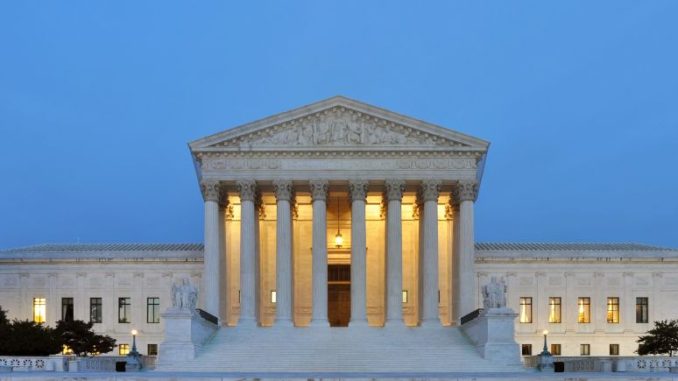
The Supreme Court, in a 5-4 decision, has found against public-sector unions in the case of Janus v. American Federation of State, County and Municipal Employees, Council. (Decision here)
The decision follows in part from the logic used in Citizens United, wherein the court found that a prior case, Abood v. Detroit Bd. of Ed., was poorly reasoned, recognizing the difference between a state allowing dues to be gathered and a state requiring that those dues be gathered. The requirement was seen to be a violation of the First Amendment as originally argued and laid forth in the Constitution, and from there the decision was made that the State’s interests as laid out in their case – labor peace, the required strength of unions – did not override the First Amendment rights of the plaintiff.
Justice Alito wrote the decision, joined by Thomas, Roberts, Gorsuch and Kennedy. Justice Sotomayor dissented, joined by Kagan, Ginsberg, and Breyer.
The matters at hand were multifold, and included:
- Was there an undue burden on the plaintiff to demonstrate that his dues were not being used for means not allowed by law?
- Was there a free speech issue at hand that overrides the State’s interest?
- Is the matter at hand enough of an abridgment of rights that it warrants ignoring Stare Decisis, a guiding principle which prevents courts from being overburdened by re-adjudication of similar cases?
The dissent was most focused on the third issue, and strongly disagreed that the potential First Amendment abridgment was enough to overturn existing law and thus throw the funding mechanisms and State laws of 22 states into chaos.
From CNN:
The justices struck down an Illinois law that required non-union workers to pay fees that go to collective bargaining.The ruling was 5-4 along partisan lines, with conservative Justice Samuel Alito writing for the majority.
The conservative majority said a union’s contract negotiations over pay and benefits were inextricably linked with its broader political activities, and concluded workers had a limited constitutional right not to underwrite such “speech.”

1 Trackback / Pingback
Comments are closed.